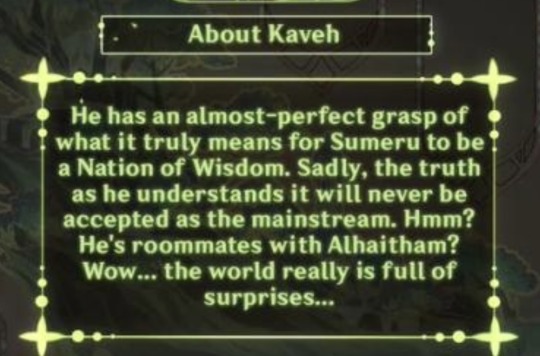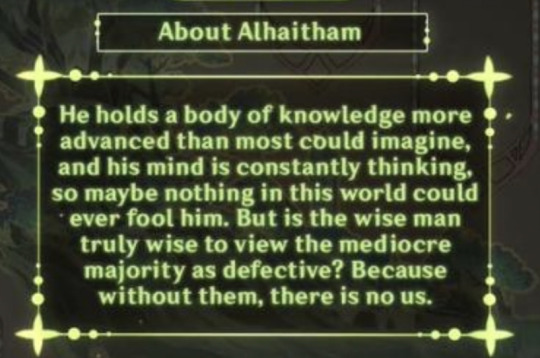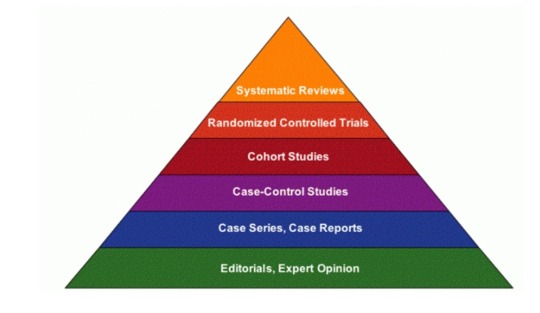#sherlock subtext
Text
Johnny! There is no baby!
#bbc dracula#dracula#tjlc is real#tjlc#the johnlock conspiracy#bbc sherlock#johnlock#sherlockian#sherlock#sherlock fandom#rosie watson#rosamund watson#mary morstan#mary watson#john watson#rosamund mary watson#john hamish watson#middle names meta in the bbc sherlock universe-middle names standing for who someone really is. Rosamund mary watson was fabricated by mary#sherlock subtext#bbc sherlock subtext#tjlc subtext#johnlock subtext
34 notes
·
View notes
Text




anyways. new personal holmes & watson ideal casting
#when I say ideal I mean I know david would play him slutty and michael would serve gay subtext#david tennant#michael sheen#david and michael#Sherlock Holmes#holmes x watson
1K notes
·
View notes
Text
the narrative of kaveh being an idiot is so baffling to me because he is, quite literally, canonically considered a genius…? why is the popular consensus “6000 IQ alhaitham and his lovably stupid roommate kaveh” when every npc commenting on kaveh refers to his intellect & talent, the literal god of wisdom says kaveh has an “almost-perfect grasp of what it truly means for sumeru to be a nation of wisdom” (whereas she questions alhaitham’s wisdom in her line about him), and alhaitham’s own story profile calls kaveh a genius multiple times??? like the whole point is that he’s alhaitham’s intellectual equal despite having entirely separate worldviews and demeanors, which frustrates alhaitham to no end — ‘how can someone so smart do all of these things that, to me, are so evidently stupid?’ the takeaway from their dynamic should NOT be kaveh is dumb, but rather that empathy and emotion aren’t actually the opposites of logic and intelligence, but sadly both alhaitham and the realm of academia as a whole are too blinded by their own definitions of logic to fully realize that.
tl;dr kaveh is not dumb by any standards and i will prove it
(under the cut: quotes/screenshots/etc proving this + more. please spread the gospel and dispel ignorance. amen)
some npc voicelines (there are more but i’m lazy):


these are pretty self-explanatory — kaveh is a widely-renowned scholar, architect, and engineer throughout sumeru. he graduated from the akademiya with flying colors, students were desperate to take his classes, etc.
nahida’s voicelines:


both are intelligent but only one is wise: kaveh. alhaitham is too restricted by his narrow definition of wisdom (read: what he deems ‘logical’) to look beyond himself and grasp that there’s more to intellect and knowledge than pure cold rationality. he can’t comprehend that empathy and intellect aren’t fundamentally incompatible — in fact, they’re best when put hand in hand. kaveh is one of the few scholars capable of valuing emotions, empathy, and artistic endeavors, while the rest of the akademiya closes themselves off to that entire realm of knowledge from the get-go. this is what makes kaveh uniquely wise, and what alhaitham lacks. until you understand that emotions and logic can and should coexist, you won’t be successful in the true pursuit of knowledge.
last but not least:
alhaitham’s profile (worth noting that profile stories are pretty much the most reliable source of information on characters’ true beliefs and opinions — their voicelines are still them putting on acts in front of the traveler, but these stories are told from the perspective of an omniscient narrator and are likely closer to the truth):

“two geniuses.” and even after their falling out, “neither of them will deny the other party’s exceptional brilliance” — meaning alhaitham considers kaveh to be exceptionally brilliant. point blank. in the text bro

hilarious line — it’s basically alhaitham saying he doesn’t understand how someone with kaveh’s talent and intellect could have a personality/worldview so different from haitham’s. ‘how can someone that smart be so annoying!!!!!’ and ofc by values we know it’s referring to kaveh’s idealism, empathy, and affinity for the arts

alhaitham considers kaveh to be “another genius,” someone who is so much his intellectual equal that he’s “an excellent mirror” for alhaitham. it’s like an experiment for him — the initial question is “how can someone as smart as me care about all of these things i’ve always believed to be worthless,” the subjects are kaveh and alhaitham, the controlled variable is their intellect. because their intellect is the same, alhaitham is able to study their differences (can’t attribute said differences to varying intellect). alhaitham would never say it out loud — and luckily he doesn’t need to bc his character story tells us — but he’s deeply fascinated by kaveh bc kaveh’s very existence is a threat to haitham’s worldview, & he’s letting kaveh stay with him bc through kaveh, alhaitham learns about not just himself but the outside world and humanity as a whole, and as a scholar, there’s nothing more valuable. (also because he feels comfortable with kaveh [“he’s a familiar face”] and they’re both lonely [“similarly lacks familial attachments”] lol these two are never beating the We Know You Don’t Actually Hate Each Other allegations but that’s a different point so i digress)
IN CONCLUSION:
this is all just the TEXTUAL evidence — people saying “kaveh is smart” — and doesn’t even include all of the obvious implicit signs of kaveh’s intellect (no one who graduates from the akademiya w honors and teaches classes there could be anything other than incredibly intelligent, al “i don’t do anything that i don’t want to do” “i’m not going to bother explaining it to you because you won’t understand” haitham not only puts up with but actively seeks out debates with kaveh which he absolutely would not do if he didn’t respect him or consider him to be of roughly equal intellect, look at the debates he has w alhaitham on sumeru messageboards and TELL ME those messages sound like they were written by an idiot or itto or something [you cant], etc etc etc).
and also this is all from 3.3 (+ 3.4 alhaitham leaks)! we don’t even know kaveh’s rarity yet, that’s how far he is from being playable, but there’s already this much information on just how smart he is! it’s the main thing we know about him — 1) he’s smart, 2) he’s passionate/driven by what he feels is right! why does that keep turning into “LOL HOTHEADED HIMBO”??!
okay look. this is all so extra i know. BUT. i must set the record straight now (god knows it’ll only get worse the closer we get to kaveh’s release) because this sudden-onset mass illiteracy within genshin players is going to send me to an early grave. feel free to use as a resource and educate the ignorant so kaveh does not end up reduced to a one-note meme dumb guy when literally that’s just… not even in the game. i mean at least other annoying OOC fandom interpretations have basis in the game but genshin literally tells u every time it gets the opportunity that Kaveh Is Just As Smart As Alhaitham Because Cold Rationality Does Not Equal Wisdom/Intelligence and losing that would be such a crime because it is by far the most interesting n promising thing hoyo has done with new characters in ages! like, not only are they funny and entertaining, not only are they fascinating incredible foils for one another, but they’re used to make a much-needed argument against the prevalent hegemony of mindless rationality and our “logical” society’s illogical fear of emotion/empathy. but yeah sure, theyre just itto & ayato 2.0, i guess. god. the lack of reading comprehension among genshin players is literally an epidemic
#frustrating me to no end. miss the entire point of their dynamic and characters as a whole why don’t you#literally this isn’t ‘shipping goggles’ or anything it’s just … knowing how to read. not looking for subtext just literally reading the text#kaveh#genshin impact#genshin#genshin kaveh#genshin impact leaks#alhaitham#haikaveh#kavetham#kavehtham#genshin meta#i hope ppl see this bc it Needs To Be Said but sadly it will probably get like 10 notes. BUT STILL. i will try#fr the narrative needs to change i don’t think i can take five months of people on reddit characterizing him as th watson to hthm’s sherlock#yeah maybe if watson was a fucking genius too!!!#long post#(under the cut lol)#100#500
1K notes
·
View notes
Text
Timeline of the relationship between Sherlock Holmes and John H. Watson!
*I had already posted this, but I deleted. I found new information as flipped through my books. So, sorry who had rebloged the previous post that I deleted, but I prefer to delete and rewrite CORRECTLY, ok?
1881 - Sherlock and Watson meet each other, through for Stamford. As per A Study in Scarlet.
1881 to 1886 - Both continue to live together in Baker Street.
1887- Watson tells us that will marry a woman, whose name he never tells us. As per, The Adventure of the Noble Bachelor
1887- Watson is married to a, no name, woman. Although his friendship with Sherlock remains and Watson even stays at Baker's when his wife is out of town. As per The Five Orange Pips.
March, 1888 - Watson remains married to an unnamed wife, according to A Scandal in Bohemia.
September, 1888 - Watson meets Mary Morstan, falls in love with and becomes engaged to her, as read in The Sign of the Four. There is no mention of what happened to the previous wife, apparently he didn't have any children either with her (I think it unlikely that she died, after all Watson never mourns her, and is soon engaged again without bereavement). It's almost as if this previous girl did NEVER exist.
1888 or 1889 or 1890??? - Watson married Mary, as read in The Adventure of the Stockbroker's Clerk. Watson says his marriage took him away from Holmes. But curiously there are some cases after his marriage where Watson is with Holmes and makes no mention of his wife (strange, isn't it?)
*that's confused me in the post I deleted, regarding the date of Watson's marriage to Mary.
Watson mentions one of his weddings being in the summer/spring and another in the fall/winter. But he does not deign to say in which he married Mary. Having met Mary in September, if he married her in the same year then it was autumn, but if he married her in summer then it is 1889.
Still, Watson says that his marriage and return to the medical profession took him away from the Holmes cases, however there are some cases where he seems to live on Baker Street in 1888 and 1889!! And this confused me earlier, whereupon I said that perhaps he was married in 1890, for how can he be married in 1888 or 1889 and also live with Holmes? Lmao.
Yes! It could just be Watson/Doyle being an unreliable narrator. But do you agree that it leaves room for doubts and assumptions/subtext?? correct?
1890 to 1891- The point is that Watson married Mary, because in The Red-Headed League, which takes place in 1890, he is married! Well, as he mentions his marriage in The Final Problem, allegedly stating that his marriage alienated him from Holmes, a case that takes place in 1891, where Holmes supposedly dies.
1894- Holmes resurfaces, and we are briefly informed that Watson's wife has died, apparently he had no children with Mary. So he returns to live with Holmes in Baker Street. As per The Adventure of the Empty House.
1895 - They aren't on Baker Street, aren' t in London, Watson refuses to say why. They weren't out on a case! (Coincidence or not, this was the year of Oscar Wilde's trial who, although married and with children, was condemned for his relationship with men). They are back in end of April and July in the The Adventure of the Solitary Cyclist case and The Adventure of Black Peter case. But travel to norway after that. Return to Baker in September, as seen in the case of the Bruce-Padington plans case.
1894 to 1901 - Time they lived together in Baker Street again. In that time, Watson stops practicing his profession and sells his medical clinic (at Holmes' request), Watson does nothing more than follow Holmes on cases and write them down, curiously Holmes keeps Watson's checkbooks with him (not there is no explanation why, although assumptions are made that Watson had problems with overspending or bet) and Watson helps Holmes get off drugs too! As per The Return of Sherlock Holmes book.
*p.s: in the year 1896 there are cases where Watson says he does not live in Baker Street, as for example in The Adventure of the Veiled Lodger. However, these cases ALWAYS have narrative inconsistencies. And to other cases in 1897 where he LIVES with Holmes, as per The Adventure of the Abbey Grange.
Yes, Watson/Doyle is a miserable and unreliable narrator because many cases have DATES or DATA and inconsistent FACTS that don't fit, so that it's impossible to organize the 60 cases in chronological order, there comes a point where we get out of accuracy and we have to start to ASSUME/suppose/imagine where some several cases take place. As someone who has tried to organize, believe me, it's a never-ending headache, which is why there are different lists of Timelines. So I'm ignoring Watson's inconsistencies as a narrator in order to claim that he lived with Holmes from 1894 to 1901, okay? I'm just putting here the dates given by Watson that don't have apparent contradictions.
1902 - Watson left Baker Street, for reasons he does not tell us. Claims to live on Queen Anne Street. Although he still takes part in Cases and Turkish Baths with Holmes, as per The Adventure of the Illustrious Client.
1903 - Last cases. Sherlock regrets that Watson has left him to marry a woman (another nameless wife of Watson), so the detective is left alone to investigate the cases. As per The Adventure of the Blanched Soldier. And Watson returns to practicing medicine with a good clientele as per The Adventure of the Creeping Man.
1907 - Holmes is retired. He lives with his bees and a housekeeper he doesn't talk to much. He gets along well with the director and teachers of a school close to his house, to the point of visits, walks and swimming on the beach. Sherlock says he sees Watson on weekends. As per The Adventure of the Lion's Mane.
1908 to 1913 - Watson claims he rarely sees Sherlock, because Holmes prefers to send short telegrams rather than letters. Watson continues to write old Holmes cases whenever Holmes lets him. As per The Adventure of the Devil's Foot (which takes place in 1897, but Watson does just tell us until after Holmes is retired).
1914 -The last appearance of both at Canon. Date of the First World War. Watson had not seen Holmes for about 2 or 3 years, he thought that Holmes had become a hermit with his bees. But Holmes was actually undercover as a spy for 2 years on matters involving the war. As per His Last Bow case.
P.s: In the post I deleted mentioned that Watson got married 3 times and claims to have experience with women on 3 different continents. While Sherlock says he has never loved, has no interest in women and has his body as an appendage and is against emotions that undermine his reason. What they both think in terms of homoaffective relationships cannot be exposed since it was a crime at the time. Watson explicitly exposes to the public a fact that he is Heterosexual while Holmes seems to fit in Asexuality. However, narrative inconsistencies, narrative omissions and errors leave gaps for subtexts. Watson also admits to omitting data and facts that could expose clients or Sherlock and himself. So this also adds assumptions for subtexts.
#sherlock holmes#dr john watson#sherlock x john#john watson x mary morstan#mary morstan#johnlock#arthur conan doyle#acd canon#assexual sherlock#gay subtext
227 notes
·
View notes
Text


John, there's something I should say, I've meant to say always and I never have. Since it's unlikely we'll ever meet again, I might as well say it now
Sherlock S3 | Loki S2
#loki#loki season 2#loki x mobius#lokius#loki series#loki laufeyson#bbc sherlock#sherlock s3#john watson#sherlock holmes#tjlc#queerbaiting#queer#gay#gay subtext#mobius m mobius
83 notes
·
View notes
Text
baby gays will reblog six different pieces of art with "you construct intricate rituals to touch the skin of other men" plastered on them and turn around and get huffy when a show from the 2010s keeps its queer subtext subtextual and wrapped in violence
#like i don't know what to tell you man#for most of our history we've had to live in the realm of subtext for safety reasons#therefore a lot of the media that resonates with us reflects that#and can be affirming in its own way#not everyone has had the experience of coming out to acceptance and safety#ETA. NOT SHERLOCK. TRUE DETECTIVE.
28 notes
·
View notes
Text
“I am a bachelor,” said he, “and being of a sociable turn I cultivate a large number of friends. Among these are the family of a retired brewer called Melville, living at Albemarle Mansion, Kensington. It was at his table that I met some weeks ago a young fellow named Garcia. He was, I understood, of Spanish descent and connected in some way with the embassy. He spoke perfect English, was pleasing in his manners, and as good-looking a man as ever I saw in my life.”
“In some way we struck up quite a friendship, this young fellow and I. He seemed to take a fancy to me from the first, and within two days of our meeting he came to see me at Lee. One thing led to another, and it ended in his inviting me out to spend a few days at his house, Wisteria Lodge, between Esher and Oxshott.”
Mr. Eccles and Mr. Garcia meeting up for some gay sex. It’s not even subtle. ‘I am a bachelor’, ‘as good-looking a man as ever I saw’, ‘one thing led to another’... Sure, Doyle, you could not have made this any clearer
#letters from watson#sherlock holmes#the wisteria lodge#it's not even subtext anymore we STILL use this kind of language today#I'm perfectly sure few readers would have missed was doyle was implying here
72 notes
·
View notes
Note
Hello Steph, the wedding episode feels weird to me. I mean Sherlock and John dressed the same, greeted guests together, sat at the center of the table that was decorated with apparently green carnations, etc. If I attend a wedding like this in real life or they were a Victorian couple, I'd say Mary is a beard. I know part of it was fan service, so we can get cute screenshots. Any other speculations on why the wedding was designed like that? What are they trying achieve? Love from the US
Hey Nonny!
Oh yeah, TOTALLY was really weird, and why a lot of people started to really believe that Johnlock was the direction it was going. Like, even the promo photos, they looked like two grooms together. The best man and the groom don't usually dress alike, LOL. Even Mary was sidelined in all the promo photos. It was a huge discussion back in the day, and the TSo3 meta is what got me into the fandom head-on in the first place.
Like... the wedding episode, promoted as such... had everything BUT an actual wedding in it. You never see them get married. You see John essentially proposing to Sherlock, Sherlock be a bridezilla, and like... Mary was so not even involved.
So yeah, to from THAT to ... whatever TFP was is... something else indeed.
#steph replies#chatting with nonnies#tso3 meta#tso3#john and mary's wedding#was actually#john and sherlock's wedding#just basically true things#subtext in sherlock#johnlock is real#to me#s3 speculations
63 notes
·
View notes
Text
Ok so shut up, this came to my mind three seconds ago
“I love you. I’m in love with you, didn’t you hear me?”
“I always hear ‘I’m in love with you’ when you’re speaking, but it’s usually subtext.”
That’s it, that’s the show
432 notes
·
View notes
Text
Me, starting another popular drama knowing full well I'm about to be queerbaited again:

#it doesn't count if it's unrequited#or if the creators confirm it but we only have subtext in the show#hannibal#supernatural#sherlock#merlin#good omens#not sure if that one counts as queerbaiting#they never said i love you or anything in GO#but neil is pretty adamant the show was a love story#hannigram#destiel#merther#johnlock#ineffable husbands
176 notes
·
View notes
Text
As someone who lived through the epic bullshit queerbait of BBC Sherlock, can I just say how fucking CATHARTIC it is to have a similarly feeling show (with actual lines that make you go, excuse me what am I hearing rn) actually fucking GO THERE and deliver??? Because it is. Alllll the subtext has become full on text and it’s glorious. All the sadness of the story comes from the actual story, not the circumstances surrounding it. And that’s all we ever fucking wanted!!!
#good omens#good omens spoilers#johnlock#bbc sherlock#ineffable spouses#thank you neil#seriously#I’m sure someone could say it better and point out all the similarities but#i’ve just been sitting here since thursday wondering why I haven’t been sadder and I think this is it#I’m just giddy all the subtext became text#and it’s not a joke#and we’re not being laughed at#and everyone involved genuinely cares about this story and these characters#and it’s such a blessing#my post#mine
22 notes
·
View notes
Text
Any meta connoisseur want to direct me to the whole shaven/electric not blade theories?
#asib#a scandal in belgravia#bbc sherlock subtext#bbc sherlock#the johnlock conspiracy#sherlock fandom#sherlock holmes#tjlc is real#tjlc#johnlock subtext#john watson#johnlock#james moriarty#jim moriarty#moriarty#tjlc subtext#sherlock subtext
8 notes
·
View notes
Note
i’ve seen so many people talking abt how bbc sherlock mischaracterized them & their relationship, making them seem like they can’t stand each other. i don’t believe it but i wanna ask why did mofftiss make it like “that” 🫠
My take is that Sherlock is Mofftiss' attempt to transform the subtext of the canon stories into text. This means that rather than telling any specific Doyle story directly, they're trying to tell an underlying story that appears in that canon story in a way that makes it look like a new invention to any casual viewer, but is actually true to Doyle's intention in the original story.
As a consequence, where Doyle creates a side character who is a mirror to either Holmes or Watson, Mofftiss will either eliminate (or duplicate) the middleman by giving their traits/story to directly to Sherlock or John in Sherlock. They actually do this both in subtext and in text.
So, for example, subtextual violence by a John mirror toward a Sherlock mirror in the canon (let's use Culverton Smith as a Watson mirror in The Dying Detective because it's an unusually clear example) becomes textual violence by John toward Sherlock in The Lying Detective. Mofftiss were unusually obvious with this one; Doyle literally has Watson's first observations of Culverton Smith occur through a mirror. Smith turns the full power of his medical knowledge against Sherlock Holmes just as Holmes is telling Watson that he doesn't think he's a good doctor. Smith shakes Holmes roughly as he lies in his sick bed, while Watson hides. It's very easy to see the roots of The Lying Detective in this story.
In my view, there isn't really a way to convince canon readers who aren't interested in this kind of reading, and I'm not interested in doing that. Doyle was predominantly a horror writer, and he appears to have had a lot of hangups that he expressed in his fiction (I don't just mean his relationship with sexuality, but that's part of it). It shouldn't be surprising that the subtext of these stories takes some dark turns. There is absolutely nothing wrong with reading the canon for the witty banter and the derring-do! Holmes and Watson can just be crime-solving husbands if you want, and the cases can just be the cases. But it's clear to me that Doyle hid stories within his stories, and now that I've seen that, I want to uncover as much of it as I can because I find it fascinating and fun to work out.
Despite that, I wouldn't personally characterize John and Sherlock's (or Watson and Holmes's) relationship as "they can't stand each other", and clearly Mofftiss don't either, it only takes watching the entirety of TLD to see that. I also find it a bit boring to reduce Martin Freeman's performance in that episode to only one emotion (that's famously the opposite of what he does in his acting!). Their relationship is complex, and John's deeply repressed emotions are getting in the way of their sorting it out onscreen.
#Sherlock#asks#subtext#TLD#morgue scene#ACD#The Dying Detective#I'm writing about The Dying Detective in a longer meta obviously#but time is a very limited resource right now
32 notes
·
View notes
Text
WHY SHERLOCK HOLMES IS AUTISTIC
[insert pdf of entire Sherlock Holmes canon]
#I mean yeah#I could go into detail#but it isn’t really subtext#he is literally the autistic stereotype#sherlock#sherlock holmes#acd#sherlockholmes#acd holmes#acd canon
167 notes
·
View notes
Text
Two characters will literally say stuff to each other like “I want to rail you” and then people outside of the fandom tell you that you read too much into subtext when you ship them
#merlin#bbc merlin#good omens#bbc sherlock#Sherlock#supernatural#ignore me I’m just tagging the fandoms that I definitely do not read too much into#there comes a certain point where there’s subtext#and then there’s gay without using the word
73 notes
·
View notes
Text
T*LC Refutation (but decidedly NOT johnlock refutation)
Part - 3 : Everything wrong with their versions of the words "subtext" and "symbolism".
[Note: I love and ship johnlock because I saw it for myself in the show when I watched it and was part of the general audience in the past. I even want it to become canon in some Holmes adaption in the future. But T*lc needs to get sucked into obscurity and forgotten. Other fandoms like Good Omens, etc., are following the same rhetoric in their "meta" posts, and that needs to go. This is crucial for our basic critical thinking skills and objectivity.]
Now, let's discuss about the two things t*lcers talk about the most in their posts: Subtext and Symbolism.
a.) Subtext:
Real definition of subtext: Subtext is implied text in the simplest words. Meaning, something needs to be there in the plain text for the viewer to be led to the subtextual implications of the said plain text.
This means the plain text gets the main priority all the time out of the two.
Fake (t*lc) version of the definition of subtext: An element that tells a brand new story in the background, which only a handful of people in a large audience can pick up on because they're the *experts* and everyone else is a "casual". Plain text is useless and it can burn in the trash. (though only when the plain text doesn't support t*lc).
Read this article on the hierarchy of evidence, and feel free to throw it at anyone who claims to know about something for sure, just because they're the expert in that field, next time. Huge thanks to Kim for sending me this link and discussing the whole thing with me.

Expert opinion is literally at the bottom. It doesn't count as anything if you want your college paper to get approved.
You should know that much, if you're such an expert. :P
b.) Symbolism:
In the simplest words, symbolism is the idea that things represent other things. It is used in fictional stories all the time to enhance the writing style, and to urge the audience to think deeper.
But here's the thing: "Enhance" is the key word here. You cannot tell an entire story only through symbolisms. Symbolisms and subtext are only used to highlight what's already there in the plain text.
Everyone outside the t*lc echo-chamber knows that the general audience makes up for the majority of the entire audience. Their interpretations about the source material are important. Most people aren't going to keep an eye on every single molecule of their screens on which they watch the show. And writers do need their stories to come across. If they kept narrating everything through only obscure codes and symbolisms, nobody is going to get the story. Their entire efforts would be useless.
Moreover, t*lcers don't seem to understand the difference between symbolisms and allegories, as my brilliant friend Kim pointed out.
The key difference here is that allegories are the ones that tend to have a fixed meaning in the story, when they're meant to represent something abstract.
Symbolisms, on the other hand, tend to be arbitrary in their meanings. Take the colour pink, for example. It used to represent masculinity in the Roman times. Look how the times changed, and it has become the epitome of femininity now!
Here's a more insightful take from How to Read Literature Like a Professor (a book one of the t*lc people themselves rec'ed. Apparently they cherry-picked here too) :

If something such as symbolism is so arbitrary that its meaning changes from time to time, and from person to person (indovidual opinions), do you really think it is reliable to tell an entire story? No.
That's why the literary device "symbolism" is just used to enhance what the general audience can already see in the plain text.
Most of the symbolisms these people come up with in their meta posts are not even real. They just experience patternicity and think they've figured everything out. They really haven't. And in the name of sources, they just say, "Read my meta!", or "Here, read my friend's meta," or provide any other incredibly unreliable and cherry-picked links.
Why would anyone read your meta when it's clear what you wrote is obviously coming from some sort of bias? You guys are not even consistent in your theories half of the time.
You don't even know the difference between symbolisms and allegories, or even the true meaning of subtext, given how much you keep claiming to be experts in literature and cinema.
Pulling claims out of thin air that BBC Sherlock is a slow-burn romance because the BBC station asked Moffat and Gatiss to do that, etc., doesn't help anything.
Mind you, I would've made this post even if johnlock had become canon in BBC Sherlock. A logical fallacy is still a logical fallacy, even though someone might come to the correct conclusion through it accidentally.
That's why most of the t*lc style meta posts feel weird and off-putting, even though they might look clever on the surface, because they usually tend to use a lot of fancy words.
Part-2: What's wrong with their actual meta posts?
Parts- 4 and 5: Harmful aspects of T*LC (4) and Conclusion (5).
T*LC refutation (but NOT johnlock refutation) master post.
#anti tjlc#anti mofftiss#anti moffat#anti bbc sherlock#sherlock holmes#we care about science and sherlock holmes in general#subtext#symbolism#literature#fandom meta
2 notes
·
View notes